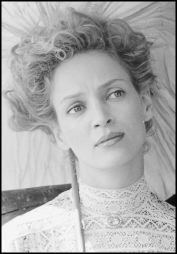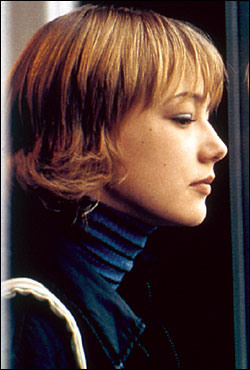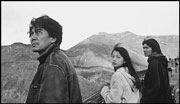CASSAVETES ON CASSAVETES
edited by Ray Carney (Faber & Faber, $25)
THE VOICE of John Cassavetes (1929-1989), now “the spiritual father of American independent film,” rings clear in Cassavetes on Cassavetes, as the groundbreaking filmmaker discusses his philosophy and the tumultuous struggles required to sustain a “marginal” vision over a 30-year career. Editor Ray Carney shaped this massive, after-the-fact Q&A—a work he calls “the autobiography Cassavetes never lived to write”—out of 5,000-some pages of source material, both primary and secondary.
Unsurprisingly, Cassavetes was a great talker, and Carney seems to have sleuthed out every interview the director gave, on tape or in print; in addition, there are Carney’s own taped conversations during Cassavetes’ last decade. Detailed interviews with most of the actors, crew members, and friends from Cassavetes’ intertwined life and films provide invaluable on-set recollections and anecdotes. (Cassavetes’ wife and muse, Gena Rowlands, threaded throughout the book in others’ recollections, is the notable interview holdout.)
It’s an enthralling, inspiring, enlightening text, since Cassavetes’ astonishingly prophetic words are what linger longest. He is, beyond all reason, an optimist: exhorting directors to find the best in themselves; chivying actors that good work can be done anywhere; lashing out at an industry that he felt—even 30 years ago—had utterly ignored its moral responsibility.
Cassavetes has his perfect filter in film professor Carney, the indies’ attack dog, who once described Citizen Kane as “pure melodramatic hokum. Fake art. Kitsch.” Although Carney doesn’t flinch from firsthand accounts of the director’s extreme methods of getting emotional truth from his actors, he never (at least in this book) discusses with Cassavetes the filmmaker’s own inconsistencies.
Nevertheless, Carney puts us at ground zero as Shadows, Faces, A Woman Under the Influence, and the rest were being willed into life, and we see that Cassavetes’ filmmaking process was as chaotic, unpredictable, and dangerous as any war zone. The hero of this book wheedles, promises, makes “unacceptable” compromises (reshooting the last of Shadows in order to please a distributor), and tells a big lie he will live to regret (the card at the end of Shadows that reads: “This was an improvised film”). Essential, irresistible reading.








